The Benefits and Limitations of AI-Generated Music
By Toby King in Music / Festivals on 04 May 2023
Recently, Universal Music Group had to intervene to shut down a collab by Drake and The Weeknd. The issue? It wasn’t real, it was generated using the latest AI technology that has taken many industries by storm. Generative AI has demonstrated the ability to create text, art, and even your own voice. Now music is being explored by these AI tools. What is AI-generated music and how does it work?

The Limits of AI Music
AI music still has limits. It is generally agreed that live music is better than recorded alternatives and fans will still want to see the artists to celebrate them. Events can also have stringent requirements where AI cannot be used, such as Eurovision.
Last year, singer Luna Ki had to withdraw from Benidorm Fest, the Spanish Eurovision qualifying final, over the use of autotune so AI certainly wouldn’t be accepted. Being such a big event with so many fans, there’s also a Eurovision betting scene that is invested in keeping the competition fair. Imagine the fallout if a sport like F1 used AI-driven cars, it’d take away the human component and related sports betting tips would become less valuable.
To work, generative AI takes a lot of training data and then draws abstractions from it to create its own unique output. This means it is limited to what goes in. With Universal Music Group getting involved, other labels will definitely intervene to stop copyright infringement and other issues. Thankfully, generative AI models can be tailored to only use the correct data, so AI music is more likely to be a sister or cottage industry when compared to the music we all know and love.
The Benefit of AI Music
AI music does have its benefits, specifically for those who aren’t musically inclined and wouldn’t typically seek out a musician to help them. Instead, they can create simple backing tracks for projects like an app or an informative video.
Think basic notes and tunes, like the ones you’d hear in an elevator, that are good enough but won’t blow people’s minds or distract from other content being presented. Being trained from existing music, AI isn’t sophisticated enough to bring that unpredictable, creative human element into its equation.
The ability to create music of simple, often overlooked functions is great for other industries. They can operate more efficiently and avoid having to pay a stock music conglomerate, assuming the AI music is a fitting replacement.
If a developer wants more memorable music, that’s where it’s best to contact a human musician that has a more distinct style and sound. So far, AI hasn’t been able to replicate that as successfully. It can also be a useful co-pilot for human musicians, a collaborator in the creative process instead of co-opting it entirely.
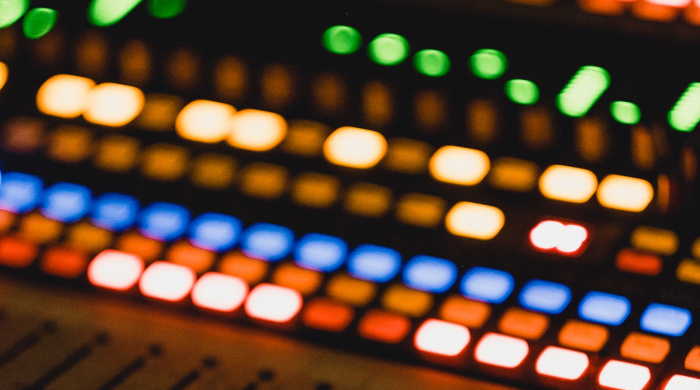
The Rights of AI Music
Like with any form of generative AI, the law will have to catch up to rights issues such as who owns AI-generated music. This presents an issue, especially where training data may have been used without the consent of involved parties, but then that also brushes up against fair-use ideals.
As said earlier, there are many scenes where AI music will be rejected as a matter of principle. Where there is any live music or competition, it’s highly unlikely that AI music could participate in the same league as the tunes made by a human. It's difficult to become invested in a music competition if the contestants were indistinct AI, with no favourites or underdogs to speak of.
Every musician knows that music labels are very well-practised when it comes to protecting their rights. They have already started advocating against the use of AI where it infringes on their copyright, which is good. With some patience, we should be rewarded with a clear rights standard for AI-generated content that makes it clear for everybody, so hobbyists and career musicians can continue without having to worry about this emerging new technology.
Contactmusic
Suggested

Leisure Festival - Dreamland in Margate
On the same day that Glastonbury welcomed back Margate's adopted sons, The Libertines, Margate itself put on it's very own Leisure Festival as it...
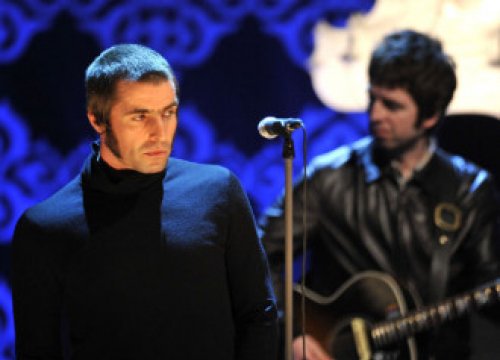
Oasis fans must answer trivia question to secure pre-sale ballot place
Oasis fans hoping to get tickets for the band's reunion shows are being asked a trivia question to secure access to a pre-sale ballot.
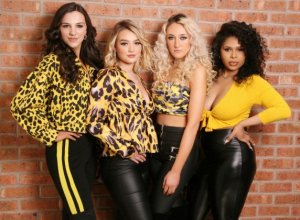
Pretty Fierce talk to us about collaborating with Doja Cat, emetophobia, arena tours and staying "true to yourself" [EXCLUSIVE]
Sheffield's very own all girl group Pretty Fierce are still on a high after the recent release of their debut single - 'Ready For Me'.

Will Varley & Jack Valero - The Astor Theatre Deal Live Review
Three nights before the end of his current tour Will Varley returned to his home town of Deal to delight a sold out crowd in The Astor Theatre.
Advertisement

WYSE talks to us about her "form of synaesthesia", collaborating with Radiohead's Thom York and the prospect of touring with a band [EXCLUSIVE]
With only a few days to go before Portsmouth based songstress and producer WYSE releases her new single, 'Belladonna', we caught up with her to find...
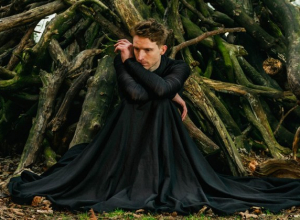
Bay Bryan talks to us about being a "wee queer ginger", singing with Laura Marling and being inspired by Matilda [EXCLUSIVE]
Colorado raised, Glasgow educated and Manchester based Bay Bryan is nothing if not a multi-talented, multi-faceted artist performing as both...
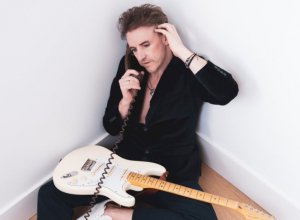
Keelan X talks to us about staying true to "your creative vision", collaborating with Giorgio Moroder and being "a yoga nut" [EXCLUSIVE]
Former Marigolds band member Keelan Cunningham has rediscovered his love of music with his new solo project Keelan X.
![Luke De-Sciscio talks to us about having the courage to be yourself, forgiving that which is outside of one's control and following whims [EXCLUSIVE] Luke De-Sciscio talks to us about having the courage to be yourself, forgiving that which is outside of one's control and following whims [EXCLUSIVE]](https://images.contactmusic.com/images/home/homepage/luke-de-sciscio-abof-a.jpg)
Luke De-Sciscio talks to us about having the courage to be yourself, forgiving that which is outside of one's control and following whims [EXCLUSIVE]
Wiltshire singer-songwriter Luke De Sciscio, formally known as Folk Boy, is set to release is latest album - 'The Banquet' via AntiFragile Music on...
Advertisement
